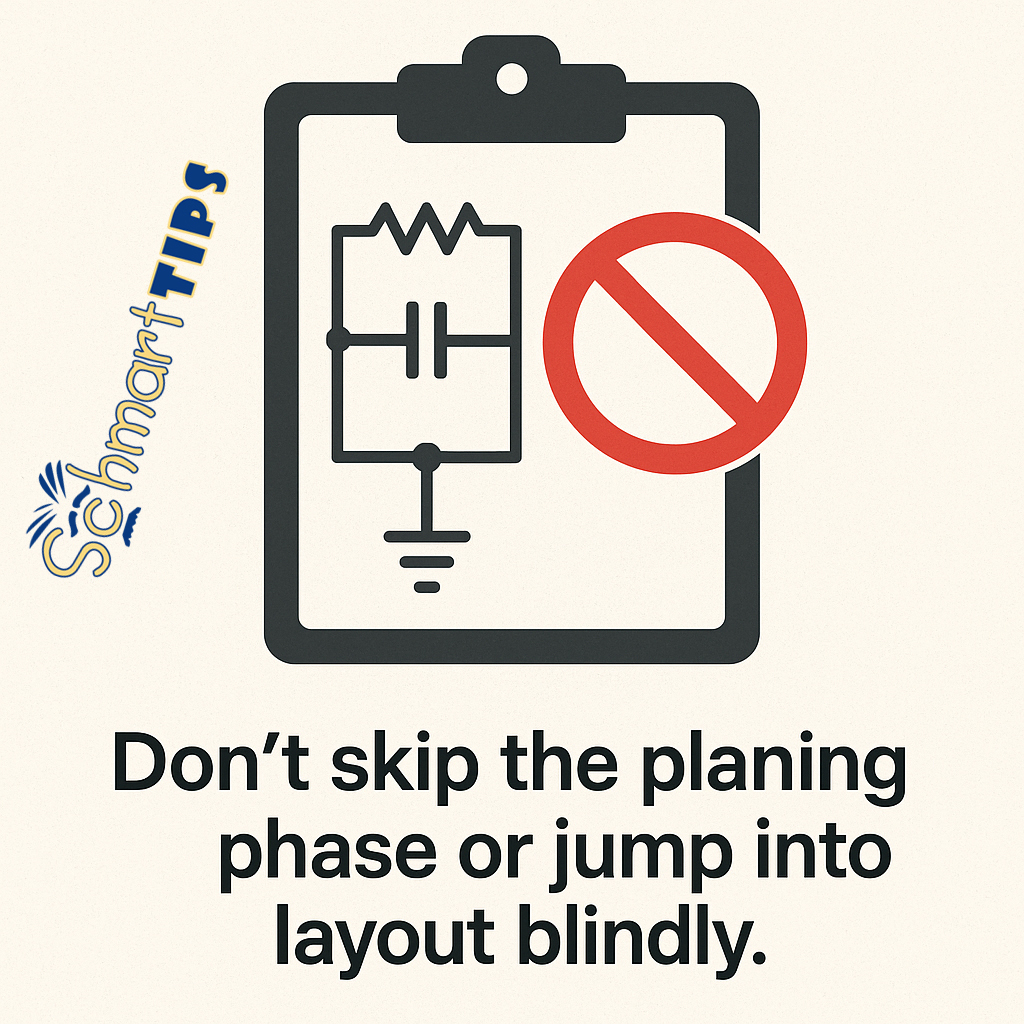 Loading... Please wait...
Loading... Please wait...Categories
Why Planning is the Most Overlooked — and Most Critical — Step in PCB Design
Posted by Schmartboard on Aug 9th 2025
When you’re excited about bringing an electronic design to life, it’s tempting to jump straight into layout. After all, that’s the “fun” part — placing components, routing traces, and seeing your creation take shape. But skipping the planning phase or diving in blindly can lead to costly mistakes, wasted time, and even complete project failure.
At Schmartboard, we’ve seen it all: poor component placement leading to noise issues, overlooked grounding strategies causing instability, and rushed layouts requiring complete rework. The common denominator? Lack of proper planning.
Why the Planning Phase Matters
-
Defining Functional Goals
Before you open your PCB design software, you need a clear understanding of the circuit’s purpose, constraints, and performance requirements. -
Component Selection & Placement Strategy
Choosing the right parts early — and knowing where they’ll sit on your board — helps avoid awkward routing, signal integrity problems, and last-minute redesigns. -
Power & Ground Considerations
Proper grounding and power distribution strategies must be decided in advance to prevent noise and stability issues. -
Thermal Management
High-power components require planning for heat dissipation, whether through copper pours, thermal vias, or heatsinks. -
Manufacturability
Planning ensures your design can be manufactured cost-effectively, avoiding hard-to-solder footprints or routing that violates PCB fab rules.

How to Plan Effectively
-
Start with a complete, double-checked schematic.
-
Think about the flow of signals and power before placing parts.
-
Group related components to minimize trace lengths.
-
Identify high-frequency or sensitive signal paths and shield them appropriately.
-
Use paper sketches or whiteboards before committing to CAD.
The Schmartboard Advantage
Whether you’re prototyping with through-hole or surface-mount components, Schmartboard solutions help you move from plan to prototype with less frustration. Our boards and soldering tools are designed to bridge the gap between concept and functional prototype — but even the best tools can’t replace good planning.
Bottom line: Measure twice, design once. The extra time you spend in the planning phase will pay off in a smoother layout process, fewer design iterations, and a more reliable final product.
Recent Posts
- » Do Inspect Solder Joints Under Magnification for Intermittent Issues
- » Don’t Assume Power Supplies Are Perfectly Clean
- » Do Choose the Right PCB Stack-Up Early to Support Signal Integrity
- » Do Route High-Frequency Signals with Controlled Impedance
- » Don’t Overcrowd the Board — Leave Room for Debugging
